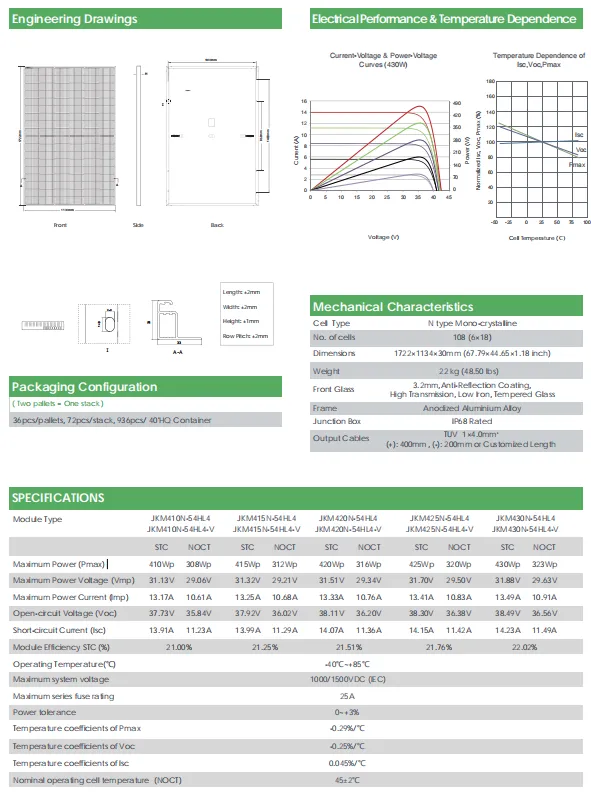Exploring the Efficiency Levels of Contemporary Solar Panels in Renewable Energy Solutions
The Efficiency of Modern Solar Panels A Key to Renewable Energy Advancement
As the world increasingly seeks sustainable sources of energy, solar power has emerged as a prominent solution. Modern solar panels, or photovoltaic (PV) systems, convert sunlight into electricity, providing a clean and renewable energy source. One of the most critical factors in determining the viability of solar technology is the efficiency of these panels. Efficiency refers to the percentage of sunlight that is converted into usable electricity. While the efficiency of solar panels has been steadily increasing over the past few decades, numerous factors influence it, and ongoing research aims to enhance performance even further.
The Efficiency of Modern Solar Panels A Key to Renewable Energy Advancement
The efficiency of solar panels is influenced by several factors, including temperature, angle of sunlight, and shading. Solar panels generally perform best in cooler temperatures, as excessive heat can reduce their efficiency. Manufacturers often specify temperature coefficients, indicating how much efficiency drops per degree Celsius of increased temperature. The angle at which sunlight strikes the panel also plays a crucial role; panels that are optimally tilted toward the sun can capture more sunlight and thus generate more electricity. Additionally, shading from trees, buildings, or other objects can dramatically decrease panel output, underscoring the importance of proper installation and site selection.
efficiency of modern solar panels

Another factor affecting solar panel efficiency is the technology used in their construction. Traditional silicon-based cells dominate the market; however, researchers are exploring alternative materials that offer higher efficiency. Thin-film solar cells, made from materials such as cadmium telluride or amorphous silicon, provide a lightweight and flexible option, albeit typically with lower efficiency. Emerging technologies like perovskite solar cells show great promise, with potential efficiencies exceeding 30% in laboratory conditions. These materials are not only efficient but also less expensive to produce, making them an exciting prospect for the future of solar energy.
As the efficiency of solar panels continues to improve, their adoption is becoming increasingly economically viable. Higher efficiency means that more electricity can be generated from a smaller physical area, making solar energy systems more attractive for residential and commercial applications. Additionally, advances in energy storage technologies, such as batteries, allow for the better utilization of solar power, enhancing the reliability of this renewable source.
In conclusion, the efficiency of modern solar panels is a vital component in the drive toward a more sustainable energy future. With efficiencies currently ranging from 15% to over 24%, and with exciting developments in materials and technologies on the horizon, solar energy is positioned to play a pivotal role in the global energy landscape. As research and development continue to push the boundaries of what is possible, solar panels will not only become more efficient but also more accessible, paving the way for a cleaner and more sustainable world.
-
String Solar Inverter: The High-Efficiency Solution for Smart Solar EnergyNewsJul.14,2025
-
Revolutionizing Rooftop Energy with the Power of the Micro Solar InverterNewsJul.14,2025
-
Power Independence with Smart Off Grid Solar Inverter SolutionsNewsJul.14,2025
-
On Grid Solar Inverter: Powering the Future with Smart Grid IntegrationNewsJul.14,2025
-
Monocrystalline Solar Panels: High-Efficiency Power for the Future of Clean EnergyNewsJul.14,2025
-
Bifacial Solar Panel: A Smarter Investment for Next-Generation Energy SystemsNewsJul.14,2025







